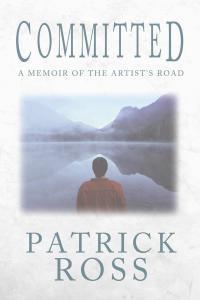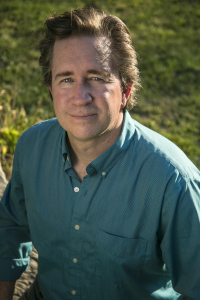Allowing Your Book to Be True to Itself
by Patrick Ross, @PatrickRWrites
“The author has certainly gone on an interesting journey, but I’m afraid the tone is too journalistic for our list. I’m looking for more literary and personal accounts of creativity and personal growth.”
That was a rejection my literary agent received on June 2, 2011, to our proposal for The Artist’s Road, a yet-to-be-written nonfiction work that we pitched as a craft book. It would focus on creative lessons I learned from artists I interviewed on a cross-country U.S. road trip for a documentary video series. My encounters with those artists and their authentic approaches to living an art-committed life had transformed me; part of that transformation was a compulsion to write the story of my trip. Yet my background was journalism; I wrote about others, not myself, and the book proposal reflected that.
Three weeks after that rejection I found myself in Montpelier, Vermont, at my first residency in an MFA in Writing program. Eleven classmates and two instructors workshopped my submission, a proposed chapter of the book. It contained an interview with a compelling printmaker named Sabra Field, lessons Sabra had to offer on her own creative process, and some humorous anecdotes of life on the road. Everyone in the workshop had the same reaction. They told me how well I had captured both Sabra and the location, just as a journalist should. But they also told me one thing was missing: the narrator.
“If we’re going to travel across the country with you, Patrick, we want you in the story,” one classmate said.
What I came to realize that June was that my book wanted to be a memoir. The problem was that I was not a memoirist. I could have abandoned the project entirely. But I had just begun an MFA program to grow as a writer, so I took a leap of faith and began writing the book anew, with the guidance of Vermont College of Fine Arts instructors. I made them earn their pay; I proved remarkably resistant to putting myself on the page.
Two years later, however, I had a complete rough draft of an actual memoir, which told in raw and honest prose why I had been so obsessed with artists and the creative process; I had turned away from my own creativity out of fear of a downward spiral as someone with bipolar disorder. I feared modeling behavior I had witnessed growing up in a household ruled by mental illness.
Three years after that original rejection, the book–rechristened Committed: A Memoir of the Artist’s Road–had found a publisher. Now it’s out in print and I stand exposed to the world, my flaws and mistakes visible to anyone willing to purchase or borrow a copy. Fortunately I’ve had a lot of time to get used to that idea.
Michelangelo believed that when he sculpted, he was merely liberating art that was already hiding inside the stone. I have come to believe that Committed existed all along. It just took me several years to liberate it from the layers of resistance and denial I had placed around it. In the book I write about my admiration of those living authentic lives; I learned to be authentic to what Committed needed to be in order to write it, and to see it published.
As it happens, Committed still contains lessons on creativity from the artists I interviewed. One from award-winning science fiction author Michael Swanwick resonated with me while writing Committed. Let me quote from the book:
I haven’t read any of Michael’s books, although I had intended to before I became buried in video editing. I ask Michael to explain his fiction as much for my benefit as for the video’s viewers. He says he writes all types of fantasy and science fiction. He’d make more money if he stuck to one genre, but then again, he says, he’d make more money as an accountant. He likes being a full-time writer, which gives him the freedom to write whatever he wants. Doing so means he doesn’t always choose the most lucrative publication path. “It is, however, the most satisfying way to spend your life.”
Michael has learned to write each book the way that story wants to be told. He may be right in saying he could make more as an accountant. But he is a successful, full-time author because his books, when written the way they want to be told, are compelling, and thus are published.
One thing I learned on my cross-country road trip, and the writing process that followed, is that when we meet resistance in life it is easy to push back. Sometimes, however, we should stop to listen.
Patrick Ross is an award-winning journalist,
creative writer, and blogger. His first  book, Committed: A Memoir of the Artist’s Road, was published in October 2014 by Black Rose Writing. He blogs on creativity, writing, and living an art-committed life, and teaches creative writing with The Writer’s Center in Bethesda, Maryland, and online with The Loft Literary Center. He lives in Alexandria, Virginia, with his wife and teenage son, and wonders constantly what his daughter is up to six hundred miles away at art school. Learn more at patrick-ross.com.
book, Committed: A Memoir of the Artist’s Road, was published in October 2014 by Black Rose Writing. He blogs on creativity, writing, and living an art-committed life, and teaches creative writing with The Writer’s Center in Bethesda, Maryland, and online with The Loft Literary Center. He lives in Alexandria, Virginia, with his wife and teenage son, and wonders constantly what his daughter is up to six hundred miles away at art school. Learn more at patrick-ross.com.
Amazon: http://bit.ly/rossamazon
The post Allowing Your Book to Be True to Itself appeared first on Elizabeth Spann Craig.



